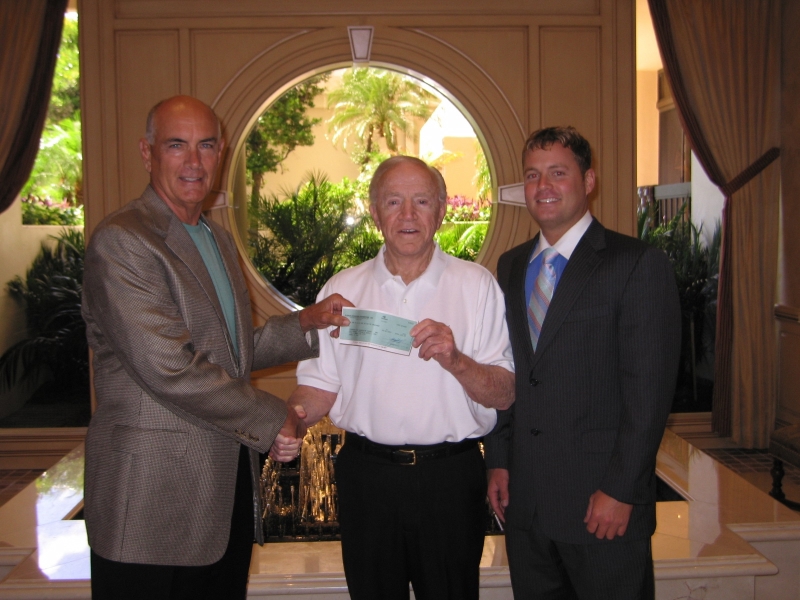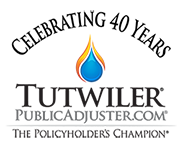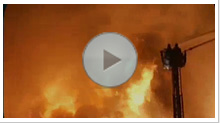Being able to provide records and reports of the property conditions will help you avoid the most common excuse the insurance company will use to try and deny your claim. What we hear most often from insurance adjusters representing insurance carriers, is that damages are pre-existing, old damages, or maintenance problems and thus not covered for the loss reported. Being able to show your insurance company proof of damages with condition surveys completed before the loss will be of great benefit and help win your case in a claim dispute.

With your intercession, we were able to repair our buildings 100% and feel we might have enough left over to refund our owners a portion of the special assessment we had to charge up front to cover the insurance deductible.
– Condominium Association President
Understanding Condominium and Homeowner Association Insurance Claims
Condominium Associations, depending on the state where they are located, may have different ownership rights, property insurance issues, and requirements than a Homeowners Association. As an example, in Florida a condo association is generally divided into the master association’s property and the unit owner’s property with the law setting out who is responsible for the insurance and repairs of the two properties. Unfortunately, there has been close to some 20 rewrites of the Florida statutes that over the years have attempted to set out who has the responsibility to insure the property and make repairs to the master property versus the unit owners. Given all these changes, the interpretation of the statutes are not simple and we constantly run into controversy as insurance companies and their adjusters still apply their own interpretation in a manner that will benefit them versus the policyholders.
There are also many properties that look like a condominium with attached units but in fact they have been set up as homeowner associations. The statute for this type of community will be different than a condominium association. Many of these attached homeowner communities (some are often townhomes) are titled with the unit owner owning it in fee simple ownership. They also own the complete unit, which requires them to insure them with a standard homeowners policy know as an HO 3 policy. In a condo the condo unit owner would insure their property as required by law with an HO 6 policy.
When a loss occurs to multiple buildings/units in a homeowners association, it is very difficult to not only adjust these losses but also for the community owners to agree on a repair plan as each unit owner has their own insurance and probably an opinion on the necessary repair protocol. We sometimes find the association documents in conflict as there are often questions regarding who has the right or obligation to make repairs. The big conflict often occurs after an insurance covered loss, which is different than normal repairs and maintenance. If you live in a homeowners association with fee simple ownership and the units are attached, we suggest you review the insurance and repair plan with your legal counsel and understand the issues before a loss occurs in your association.
Pre-loss planning is critical in these communities. A plan should be put in place so a person or committee can step in and deal with the many issues that follow damage to multiple units. In addition to a well planned disaster recovery plan, these associations should have a file available that shows the pre-loss condition of the property through inspection and condition survey reports. It is also important that condo homeowner’s records, board minutes and other records frequently requested by the adjuster be available.
Remember, you will have to assign a manager of the loss whether it is a board member, a committee, and ideally a qualified and competent public adjusting firm to get your association through all the myriad of issues that follow in the loss adjusting process and repair process.
For over 27 years, condominium associations and unit owners have turned to or referred their colleagues to Tutwiler & Associates. As experienced public adjusters, we understand the claims process and have all the resources to help you recover your claim. Our knowledge of the insurance policy, claims process and field experience have yielded us a longstanding positive reputation in the industry.
We pride ourselves on obtaining the maximum claims settlement under your policy provisions so you can be paid to recover as quickly as possible. If you would like help with your condominium association insurance claim and understand your options, give us a call at 813-412-8357 or contact us.
Continuing Education Courses for Property Managers and Community Association Managers
Tutwiler & Associates is offering two, 2 hour, 2 credit courses. Navigating the Insurance Claim Minefield or Disaster Planning and the Reality of Insurance Claim Outcomes. Call 800-321-4488 to schedule a class for your group.
Condominium Fires and the Insurance Claim Process
Condominium fires can be particularly problematic and messy for all parties involved and it’s common for insurance claim mistakes to ensue. Engaging a public adjusting firm soon after a loss, will help ensure an Association Board of Directors (BOD) that best practices are being employed to protect the insurance claim, document all damages, follow carrier protocol in order to avoid denials and protect the best interests of the BOD and unit owners.
Here’s some steps the Association should consider taking after a fire.
Remember, the BOD has a fiduciary responsibility to the association not to mention its contractual obligation and burden of proof as the insured Policyholder.
Some Associations assume they can just let their Property Manager handle a claim. Property Managers are not trained to handle property claims nor do they possess the expertise to understand policy language or the claims process. Property Managers need to be free to manage the day-to-day operations of the community. Leaving the claim solely to the property manager can create serious claim settlement issues. The better plan of action is to include the Property Manager and at least 1 member of the Board of Directors. Then organize a team of service providers with expertise in specific areas such as: medical, insurance, legal, and general contracting. Making a public adjuster part of this team will help obtain the insurance monies to fund the rebuild. Don’t rely on contractors to handle the insurance component. In Florida, it is a 3rd degree Felony for a contractor to act as a public adjuster. Even if the contractor says they have a public adjuster on their payroll – they cannot be the contractor and public adjuster at the same time or on the same claim due to the inherent conflict of interest.
Obtain written confirmation from the Association Insurance carrier that they do not wish to perform their own Cause & Origin Investigation, which is typical for most insurance companies to do following casualty losses such as a fire. Cause & Origin Investigations conducted by the carrier are completely separate from the State Fire Marshall and insurance companies do this for subrogation purposes and they are well within their right to perform. Allowing an emergency restoration company on-site to start mitigating the loss may prejudice the carrier’s investigation by destroying evidence and thus cause settlement issues.
Before signing, review a copy of the restoration company contract to see if there is any Assignment of Benefits (AOB) language that may impede the Board’s ability to pursue its claim. This is another major issue because the contractor can essentially sideline the BOD because the contractor can essentially take an assignment and control of your claim/policy. Here is an article of interest
Don’t initiate work until you get insurance carrier approval. Get a detailed cost estimate from the restoration company in writing. The restoration company needs to produce time sheets, names of workers, list of equipment it is using, moisture and drying logs and also tell you for how long they intend to leave all their equipment running. Should your insurance carrier disagree with their scope of work or final invoice, the BOD may become liable for having to pay.
While the BOD has a “Duty to Mitigate” the damage so as to prevent further damage from occurring, it is our opinion that the contractor should simply be performing some selective demolition, especially in the areas that were severely damaged to remove all saturated/wet building materials and also those building materials that are porous, which often hold smoke odors that can linger, notwithstanding any potential health hazards of unit owner/tenants that may be breathing the toxins for which the Board may later become Liable given your fiduciary responsibility to the Association. Be sure the contractor is following industry regulations and guidelines that are set forth by the Institute of Inspection Cleaning and Restoration Certification more commonly referred to as IICRC. These are a specific set of practical principles and processes that govern Professional Restoration methods of Fire and Smoke Damage properties. Bottom line, ask the contractor to provide their “Remediation Protocol,” which serves as their basis to perform work and then once complete, they need to provide you their “Clearance Testing Results” so that you can confirm the work was performed and have all this documentation for your files. Alternatively, you could retain the services of an Industrial Hygienist to establish the protocol and confirm non-bias results. To reiterate, NO work should be performed until all Cause & Origin investigations are complete and the scene has been cleared.
The BOD will be faced with some challenging issues and decisions on how to best handle the insurance claim process. The BOB will be best served by working with a Public Adjuster to develop a written plan of action that best serves the BOD’s best interests. This plan should include the following:
Request that the BOD be provided written weekly updates regarding the mitigation and demolition efforts to ensure BOD compliance with the Post-Loss Duties that are outlined in the insurance policy. Taking the appropriate steps can mean the difference between an inadequate claim settlement or a fair claim recovery.
Request that the BOD be provided a written analysis outlining the Policy Coverages, Policy Limits, and potential limitations and/or exclusions that may apply to the claim. The BOD also needs to be advised of any potential Co-insurance requirements/potential penalties as well as any Law & Ordinance or Building Code upgrade that may need to be addressed to comply with the local Building Department and current Florida Building Code.
The BOD also needs to understand what its duties are as the Insured Policyholder. Request a “Certified & True Copy of the Insurance Policy to include ALL Forms & Endorsements” to confirm the duties.
Understand Master & Unit owner responsibilities as outlined in the Florida Condo Statute 718.111
The above represents a few of the concerning issues that require immediate attention, but certainly they do not encompass all. The insurance company will send their hired adjusters to make inspections and likely will hire other experts to perform additional investigations to protect the insurers interests. An experienced public adjusting firm that routinely handles these issues will meet with the carrier’s adjuster on behalf of the BOD ad ensure a proper inspection is performed and protect the best interests of the Association and the BOD who govern it.
Tutwiler & Associates will be a resource for the condominium association to ensure a positive claim experience and help our clients and their residents recover from a catastrophic loss during their most vulnerable time of need. If you would like help with your condominium association insurance claim and understand your options, give us a call at 813-412-8357 or contact us.
FAQs About Condominium Associations
We suggest a through review and understanding of the rights and obligations of the members of the association regarding insurance coverage, disaster planning and recovery. In today’s insurance world, high deductibles and exclusions need to be budgeted for as there will be high out-of-pocket costs following a large loss event. Pre-loss preparation and planning is critical to a successful recovery.
In the confusion and pressure after a large loss, management companies or board members will sign contracts for services without understanding what they are signing or the real cost. If there is a dispute for overcharging related to the scope and price of the work, the insurance company will often take the position that the condo representatives signed an emergency service or repair contract vs. the insurance company and they will only pay what they feel are the reasonable charges for a scope of work they believe is required and not for any unreasonable and unnecessary work. The emergency services contracts should always be reviewed and understood before signing them. Always try to get the insurance company involved on the front-end with the emergency service provider before signing a contract. It’s a good idea to have the associations general legal council read and approve these types of contracts.
Without a doubt, the most frequent and problematic are water losses. Water losses are the most frequent of all insurance perils. When they happen in condos and the damage is to both the unit owner’s property and the master association property it is almost always a very difficulty situation to resolve.
From our experience, it starts when the master association and or their manager fail to take part in the dual role of being involved in making repairs and sorting out the issues of what needs to be done when water and/or mold damages a unit including common element property such as dry wall and building items owned by the condo association and property damaged that belongs to the unit owner.
It is very difficult but often necessary to go to the board of directors and request that they put the insurance company on notice. Often the reason they do not do this is a large deductible, which means the repairs will have to be paid out of a general fund. If you are a unit owner with water damage to the interior of your condo that includes the master association’s property, do not be intimated and push to get the board of directors involved. If the insurance company or the agent balks and will not help you get these claims reported and paid, get professional help. We know the hot buttons to push to get the matter moving and settled so both the insurance carrier for the unit owner and the insurance carrier for the association pay and do what they are suppose to do for their policyholders.
Besides proper insurance coverage and /or financial resources to pay-out-of pocket expenses, our experience has been that those associations who have put in place a key person or persons with leadership skills have come through the best. Communication through good leadership is a critical key to recovery. Part of that process involves the leadership quickly realizing their limitations and consider getting professional help. Insurance adjusting in large loss situations is complex and very time consuming. There will be many issues involved and someone has to represent and manage the loss, a key function of an experienced and qualified public adjuster.
This answer is dependent upon many variables. For a detailed answer we turned to attorney Mr. Rob Samouce with the law firm Samouce, Murrell, & Gal, P.A., in Naples, FL who concentrates his practice in the areas of community associations law. Read Who pays for damage from water leaks?

